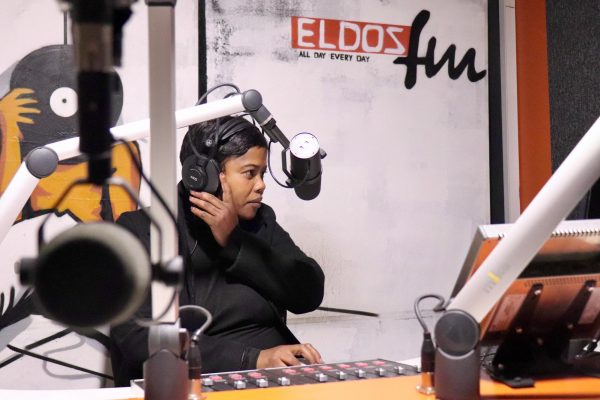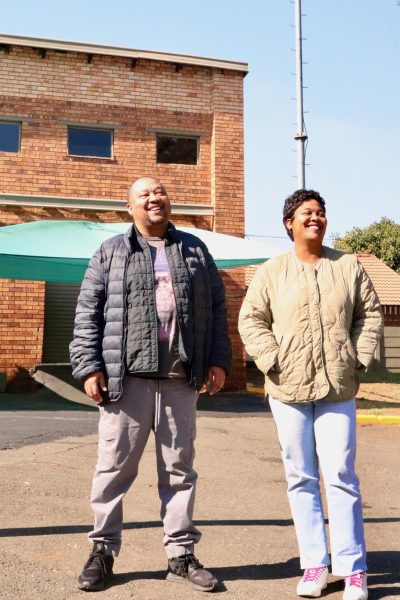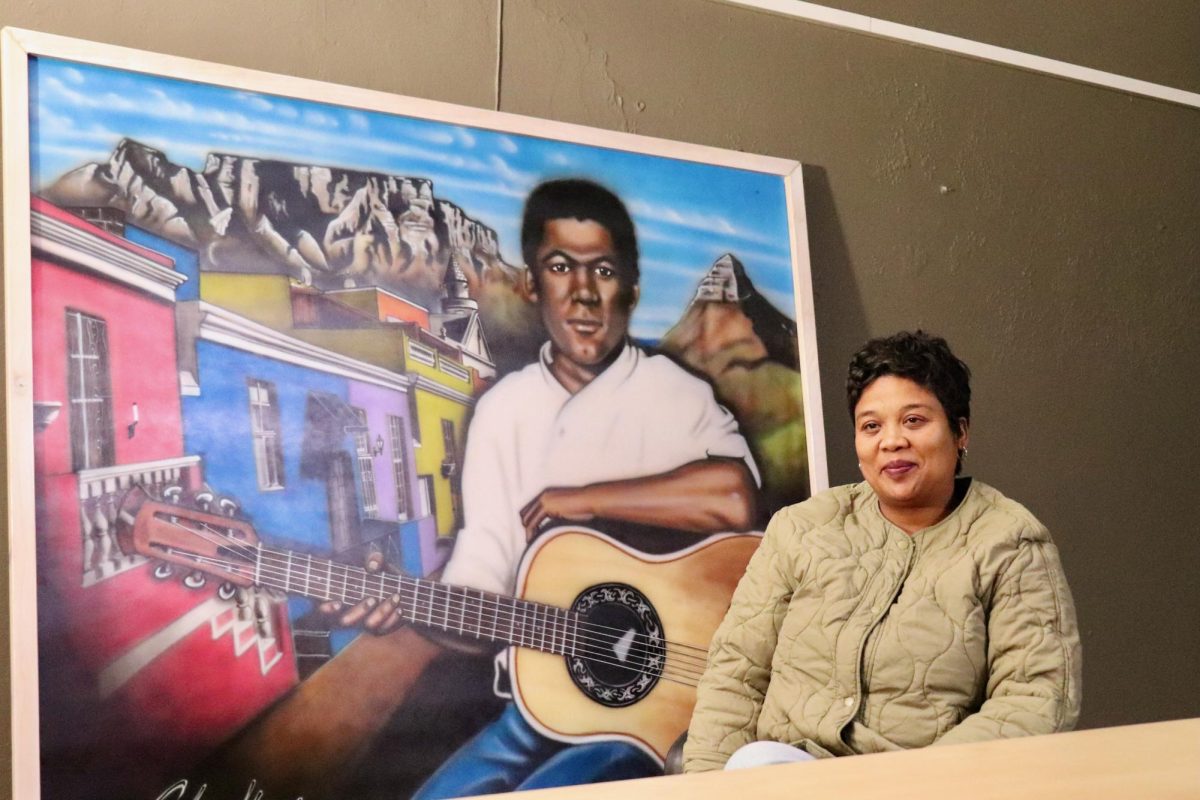ELDORADO PARK, South Africa – Say “Eldorado Park” in the Johannesburg area, and many people will think of drugs, crime and poverty.
In fact, poverty, crime and gang violence are significant challenges in Eldorado Park. But the people who live there know a different story, one you can hear by listening to ELDOS-FM, the town’s community radio station. Listeners can tune in to 87.6 FM to hear current affairs and lifestyle talk shows and music shows featuring old-school R&B and traditional South African songs.
Now a suburb of Soweto, Eldorado Park was formerly designated as a coloured township by the apartheid government. In South Africa, coloured is a non-derogatory term that means mixed race. Townships like Eldorado Park and Soweto were created under the Group Areas Act of 1950 when Black, Indian and coloured South Africans were forcibly removed from areas subsequently reserved for white South Africans.
The station is run solely by the community, for the community and broadcasts directly from the red brick building on Marney Street that it rents from The Rock Apostolic Ministries. It’s a resource the community can fall back on, said Lorreal De Lange, station founder and manager.
“It’s become a place where you will pass the police station and report a crime to us,” De Lange said. “It’s really a beacon of hope and a watchdog for everything that goes on in the community.”

De Lange founded the station in 2007, and broadcasting began in 2008. She started from humble beginnings, one without even a chair in her studio. She had to teach herself everything she now knows about radio and credits her heart and determination as driving factors for the station’s success.
“The idea was to have a platform where we can discuss our challenges as well as celebrate the good that comes from the community,” De Lange said. “From our point of view, we see the good, and the good definitely outshines the bad. Mainstream media always focuses on the bad things, but every day, we see a shining star coming up or somebody trying to make a real tangible difference.”
ELDOS-FM has grown to have 25 employees, 20 shows, about 160,000 listeners and many chairs. It is funded through advertising and the Media Development and Diversity Agency, a partnership between the South African government and larger print and broadcast companies. Its mission is to support small community media organizations like ELDOS.
The station has also produced many hosts and producers who have gone on to work at bigger radio stations.
“That’s really the success story,” said Sheldon Ferris, weekend host and De Lange’s brother. “You can go to any radio station in or outside of Johannesburg and there’s somebody from ELDOS-FM. At one point, we had six people at one of the leading commercial radio stations come from here.”
Ferris and De Lange are Indigenous members of the Haplogroup L0d, one of the oldest known human genetic lineages that traces back over 100,000 years to some of the earliest humans. It is most commonly found among the Khoisan people of southern Africa.
Ferris and De Lange credit a lot of the social problems Eldorado Park faces with people not knowing their identity or where they belong. Because of this, ELDOS-FM offers a lot of Indigenous news and stories to its listeners to give them a better understanding of who they are.
“Relaying the stories of our Indigenous past makes a huge difference in the self-love of our people,” Ferris said.

De Lange and Ferris do a lot more for the community than what listeners hear on ELDOS-FM. People come to the station for all sorts of things, including clothes, food, donations and more, and they aim to be quick to help.
“Public and commercial radio stations are really in it for the money and we are in it for the people,” De Lange said. “It’s community radio stations, so we look at what’s happening in the community and our programming is informed by what’s going on in the community . . . and we address it.”
Cindi Jantjies, breakfast host at ELDOS-FM, relocated to Eldorado Park from Port Elizabeth 12 years ago. She was surprised by this communitarianism, not only in Eldorado Park but from the station itself.
“When I started working here, somebody came in and said, ‘I’m coming to see Lola because my child doesn’t have a stationery for school.’ The community comes here for everything, and Lorreal and Sheldon always help out,” Jantjies said.
Although Jantjies isn’t from Eldorado Park, she said feels as if this is her home, in part because of the role the station has played in making it so.
“I don’t have any family here, but I have a lot of family here,” said Jantjies, referring to Eldorado Park.“The culture of the people is the need to stand together.”















































